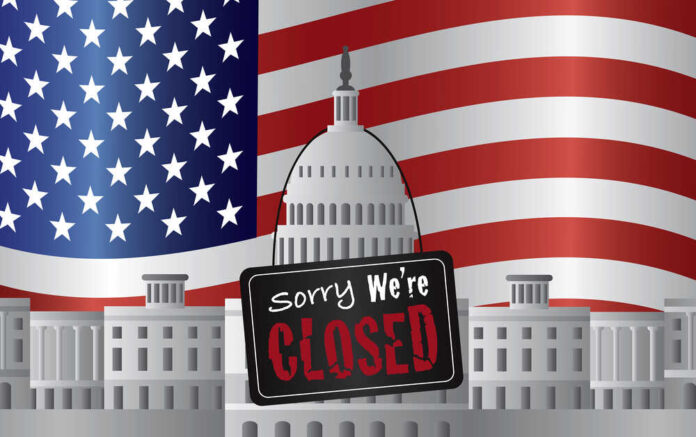
The United States is in danger of having its credit rating affected negatively once again if Congress and the White House can’t strike a deal to keep the federal government funded.
On Monday, Moody’s Investors Service issued a warning that if the government can’t avert a full shutdown, the country’s credit rating could be hurt again. Back in August, Fitch, a ratings agency, downgraded the U.S. credit rating to AA+ from AAA.
A government shutdown, Moody’s said, could end up being “credit negative” for the U.S., even if it ends up not lasting long and doesn’t cause huge disruptions throughout the economy.
In a report it issued Monday, Moody’s wrote of the effects of a possible government shutdown:
“[It] would underscore the weakness of U.S. institutional and governance strength relative to other AAA-rated sovereigns that we have highlighted in recent years.”
While Fitch downgraded the U.S. credit rating to AA+ last month, America still has a AAA rating with Moody’s – which is the rating agency’s highest rating.
If the government doesn’t avert a shutdown, though, it would “demonstrate the constraints that intensifying political polarization” has put on financial policymaking in America, according to Moody’s.
The ratings agency added:
“Looking ahead, weaker fiscal policymaking that leads to persistently high fiscal debts and higher than expected interest costs would put pressure on the U.S. rating or outlook.”
Congress faces a deadline of September 30 to forge an agreement to fund the federal government – even on a temporary basis – if they want to avoid a shutdown. That looks like it’s going to be quite the battle, though, as there is a divide within the Republican Party in the House that’s making negotiations quite difficult.
Some hard-line Republicans are demanding that certain things be put into a temporary spending plan, while other certain things be left out.
In some good news, the Senate did unveil a bipartisan spending plan on Tuesday that would fund the federal government on a short-term basis. It passed its procedural process by a 77-19 vote on Tuesday, and can now head for a full vote.
The short-term plan would still include additional funding for Ukraine, though, which could be a sticking point for some members of Congress. Republican Senator Rand Paul from Kentucky, for example, also said last week that he’d oppose any funding bill that included more aid for Ukraine.
This means that the bill might not even advance out of the Senate.
Even if it does, it is likely to receive some pushback from GOP members of the House, where Speaker Kevin McCarthy has already said that he believes any additional funding for Ukraine should be in a separate package and not part of a federal government spending bill.
At the very least, the Senate bill does serve as the blueprint for something that could receive some bipartisan support in the lower chamber, which could be enough to get it passed.














